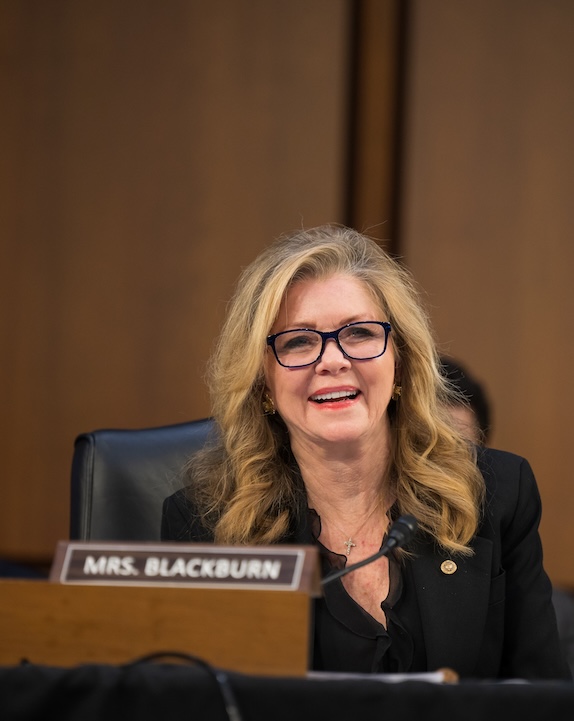Antitrust, Competition Policy, and Consumer Rights
Jurisdiction: (1) Oversight of antitrust law and competition policy and antitrust law, including the Sherman, Clayton, and Federal Trade Commission Acts; (2) Oversight of antitrust enforcement and competition policy at the Justice Department; (3) Oversight of antitrust enforcement and competition policy at the Federal Trade Commission; and (4) Oversight of competition throughout the federal government at other federal agencies.
Majority Members
- Mike Lee, Chair (UT)
- Josh Hawley (MO)
- Thom Tillis (NC)
- Eric Schmitt (MO)
- Katie Britt (AL)
- Ashley Moody (FL)
Minority Members
- Cory Booker, Ranking Member (NJ)
- Amy Klobuchar (MN)
- Richard Blumenthal (CT)
- Peter Welch (VT)
- Adam Schiff (CA)

Border Security and Immigration
Jurisdiction: (1) Immigration, citizenship, and refugee laws; (2) Oversight of the immigration functions of the Department of Homeland Security, including U.S. Citizenship and Immigration Services, U.S. Customs and Border Protection, U.S. Immigration and Customs Enforcement, and Ombudsman Citizenship and Immigration Services; (3) Oversight of the immigration-related functions of the Department of Justice, the Department of State, the Department of Health and Human Services Office of Refugee Resettlement, and the Department of Labor; (4) Oversight of international migration, internally displaced persons, and refugee laws and policy; and (5) Private immigration relief bills.
Majority Members
- John Cornyn, Chair (TX)
- Lindsey Graham (SC)
- Ted Cruz (TX)
- Thom Tillis (NC)
- John Kennedy (LA)
- Katie Britt (AL)
- Ashley Moody (FL)
Minority Members
- Alex Padilla, Ranking Member (CA)
- Sheldon Whitehouse (RI)
- Amy Klobuchar (MN)
- Chris Coons (DE)
- Mazie Hirono (HI)
- Cory Booker (NJ)
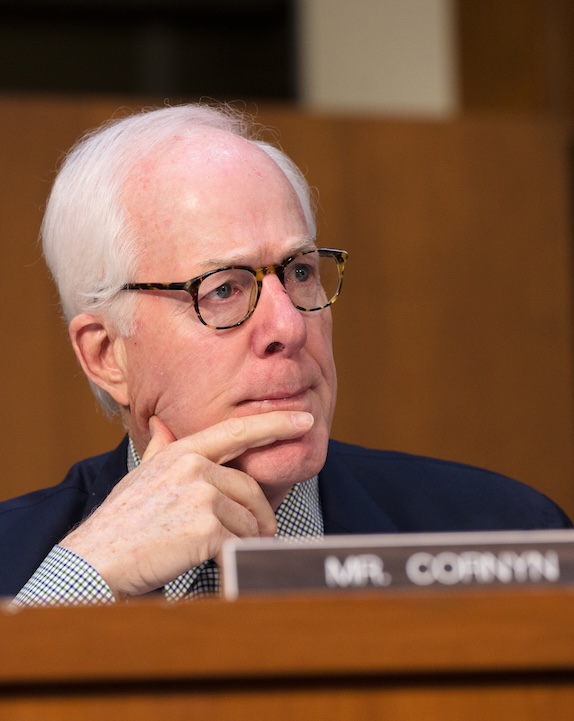
The Constitution
Jurisdiction: (1) Constitutional
amendments; (2) Oversight of the Civil Rights Division of the Department of
Justice; (3) Enforcement and protection of constitutional rights; (4) Statutory
guarantees of civil rights and civil liberties; (5) Separation of powers; (6)
Federal-State relations; (7) Interstate compacts; (8) Human rights laws and
practices; and (9) Enforcement and implementation of human rights laws.
Majority Members
- Eric Schmitt, Chair (MO)
- John Cornyn (TX)
- Mike Lee (UT)
- Ted Cruz (TX)
- Josh Hawley (MO)
- John Kennedy (LA)
- Marsha Blackburn (TN)
Minority Members
- Peter Welch, Ranking Member (VT)
- Sheldon Whitehouse (RI)
- Mazie Hirono (HI)
- Cory Booker (NJ)
- Alex Padilla (CA)
- Adam Schiff (CA)
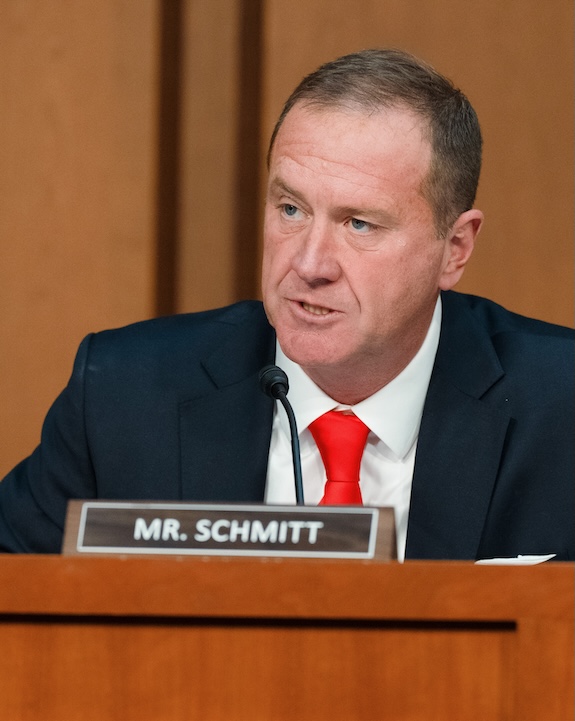
Crime and Counterterrorism
Jurisdiction: (1) Oversight of the Department of Justice's (a) Criminal Division, (b) Drug Enforcement Administration, (c) Executive Office for U.S. Attorneys, (d) Office on Violence Against Women, (e) U.S. Marshals Service, (f) Community Oriented Policing Services and related law enforcement grants, (g) Bureau of Prisons, (h) Office of the Pardon Attorney, (i) U.S. Parole Commission, (j) Federal Bureau of Investigation, and (k) Bureau of Alcohol, Tobacco, Firearms, and Explosives, as it relates to crime or drug policy; (2) Oversight of the U.S. Sentencing Commission; (3) Youth violence and directly related issues; (4) Federal programs under the Juvenile Justice and Delinquency Prevention Act of 1974, as amended (including the Runaway and Homeless Youth Act); (5) Criminal justice and victims' rights policy; (6) Oversight of the Office of National Drug Control Policy; (7) Oversight of the U.S. Secret Service; (8) Corrections, rehabilitation, reentry and other detention-related policy; (9) Parole and probation policy; (10) Oversight of anti-terrorism enforcement and policy; (11) Oversight of Department of Homeland Security functions as they relate to anti-terrorism enforcement and policy; (12) Oversight of State Department consular operations as they relate to anti-terrorism enforcement and policy; (13) Oversight of encryption policies and export licensing; and (14) Oversight of espionage laws and their enforcement.
Majority Members
- Josh Hawley, Chair (MO)
- Lindsey Graham (SC)
- John Cornyn (TX)
- Ted Cruz (TX)
- Marsha Blackburn (TN)
- Katie Britt (AL)
Minority Members
- Richard J. Durbin, Ranking Member (IL)
- Amy Klobuchar (MN)
- Chris Coons (DE)
- Richard Blumenthal (CT)
- Cory Booker (NJ)
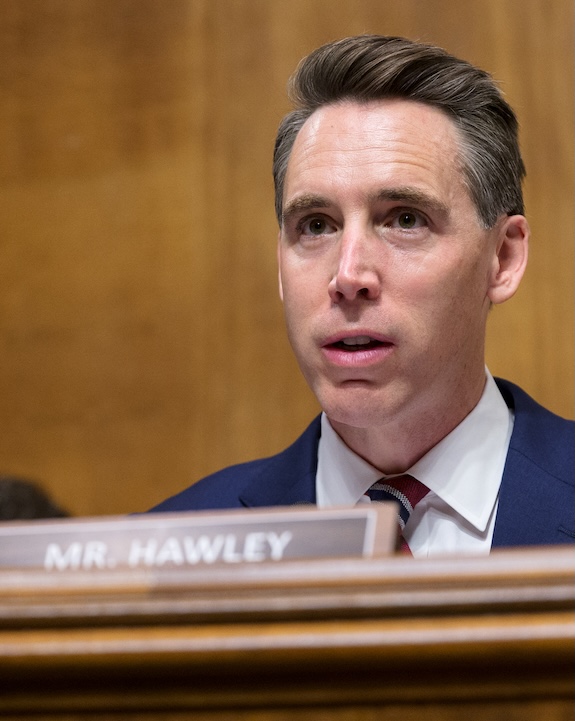
Federal Courts, Oversight, Agency Action and Federal Rights
Jurisdiction: (1) Federal court jurisdiction, administration and management; (2) Rules of evidence and procedure; (3) Creation of new courts and judgeships; (4) Bankruptcy; (5) Access to civil justice, legal reform and liability issues; (6) Local courts in territories and possessions; (7) Administrative practices and procedures including agency rulemaking and adjudication; (8) Judicial review of agency action; (9) Third party enforcement of federal rights; (10) Oversight of the Department of Justice grant programs, as well as government waste and abuse; (11) Private relief bills other than immigration; and (12) Oversight of the Foreign Claims Settlement Act.
Majority Members
- Ted Cruz, Chair (TX)
- Lindsey Graham (SC)
- Mike Lee (UT)
- Thom Tillis (NC)
- John Kennedy (LA)
- Eric Schmitt (MO)
Minority Members
- Sheldon Whitehouse, Ranking Member (RI)
- Richard Blumenthal (CT)
- Mazie Hirono (HI)
- Alex Padilla (CA)
- Peter Welch (VT)
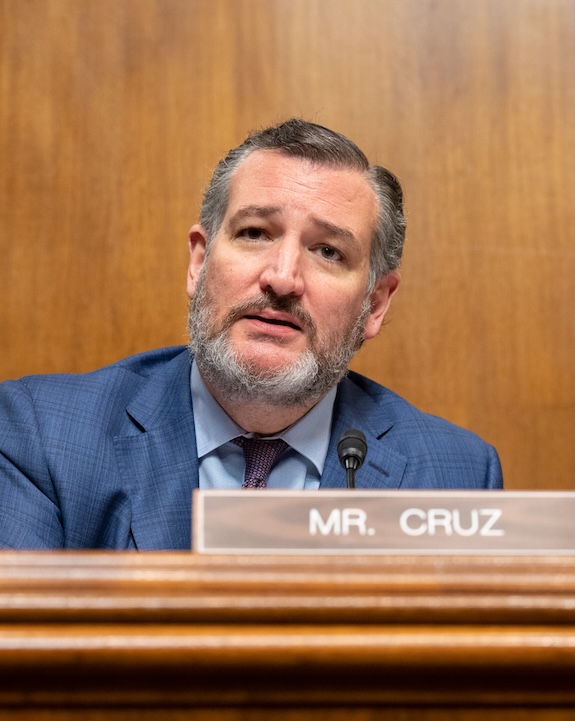
Intellectual Property
Jurisdiction: (1) the United States
Patent and Trademark Office; (2) the United States Copyright Office; (3)
Oversight of the functions of the federal government as they relate to
intellectual property; (4) Patents; (5) Copyrights; (6) Trademarks; and (7)
Trade Secrets.
Majority Members
- Thom Tillis, Chair (NC)
- Mike Lee (UT)
- Marsha Blackburn (TN)
- Eric Schmitt (MO)
- Katie Britt (AL)
- Ashley Moody (FL)
Minority Members
- Adam Schiff, Ranking Member (CA)
- Sheldon Whitehouse (RI)
- Chris Coons (DE)
- Mazie Hirono (HI)
- Peter Welch (VT)
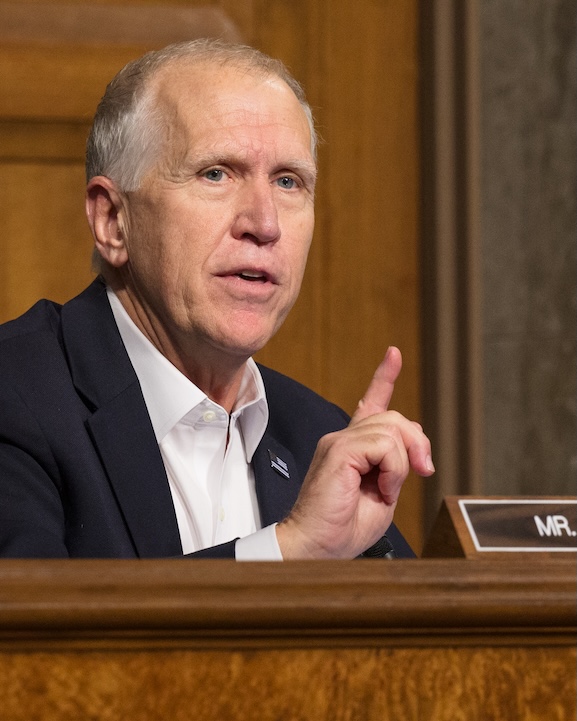
Privacy, Technology, and the Law
Jurisdiction: (1) Oversight of laws and policies governing the collection, protection, use and dissemination of personally identifiable information by the private sector and by the government, including online privacy issues; (2) Use of technology to protect privacy, civil rights, and civil liberties; enhance the free flow of information; and encourage innovation; and (3) Privacy, digital safety and security, and civil liberties implications of technology, including platform accountability issues.
Majority Members
- Marsha Blackburn, Chair (TN)
- Lindsey Graham (SC)
- John Cornyn (TX)
- Josh Hawley (MO)
- John Kennedy (LA)
- Ashley Moody (FL)
Minority Members
- Amy Klobuchar, Ranking Member (MN)
- Chris Coons (DE)
- Richard Blumenthal (CT)
- Alex Padilla (CA)
- Adam Schiff (CA)
